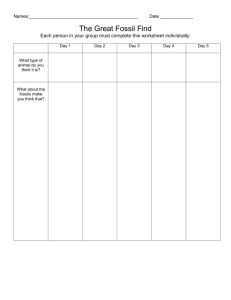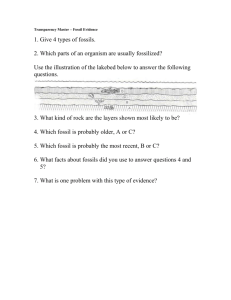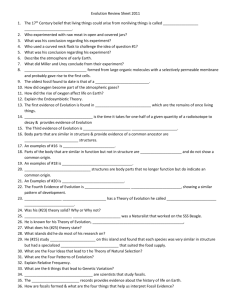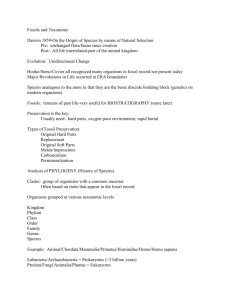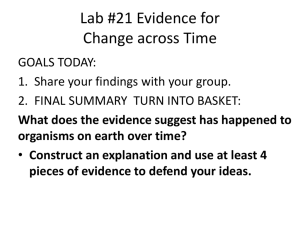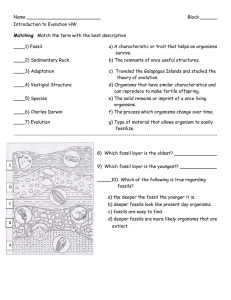Introduction to Evolution
advertisement
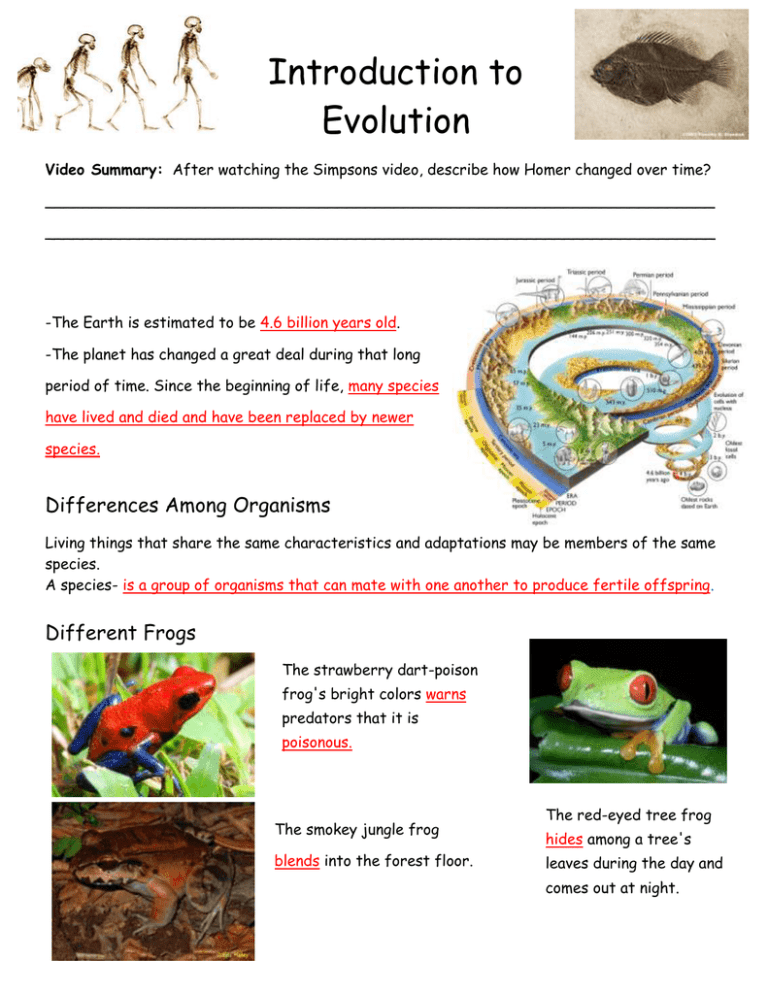
Introduction to Evolution Video Summary: After watching the Simpsons video, describe how Homer changed over time? _______________________________________________________________________ _______________________________________________________________________ -The Earth is estimated to be 4.6 billion years old. -The planet has changed a great deal during that long period of time. Since the beginning of life, many species have lived and died and have been replaced by newer species. Differences Among Organisms Living things that share the same characteristics and adaptations may be members of the same species. A species- is a group of organisms that can mate with one another to produce fertile offspring. Different Frogs The strawberry dart-poison frog's bright colors warns predators that it is poisonous. The smokey jungle frog blends into the forest floor. The red-eyed tree frog hides among a tree's leaves during the day and comes out at night. Animal Adaptations Adaptations- is a characteristics that helps an organism survive and reproduce in its environment. Adaptations can include structures and behaviors for finding food, for protection, and for moving from place to place. Evolution- is the process by which populations accumulate inherited changes over time. Scientists use fossils as evidence of change in species over time Fossil - the solidified remains or imprint of once-living organisms. Fossils are found in different layers of the earth. Usually the deeper the fossil is found, the older the fossil is. Scientists have described and named close to 300,000 fossil species. The collection of these fossils show the historical sequence of life known as the fossil record Fossils found earlier and deeper in the earth are now extinct. Whales do not have hind limbs but there are bones inside their bodies which was common among earlier ancestors. These remnants of once-useful structures are known as vestigial structures Comparing Organisms Along with looking at the fossil record, scientists look at different kinds of evidence that support the theory of evolution: A) Comparing Skeletal Structures B) Comparing DNA C) Comparing Embryonic Structures
